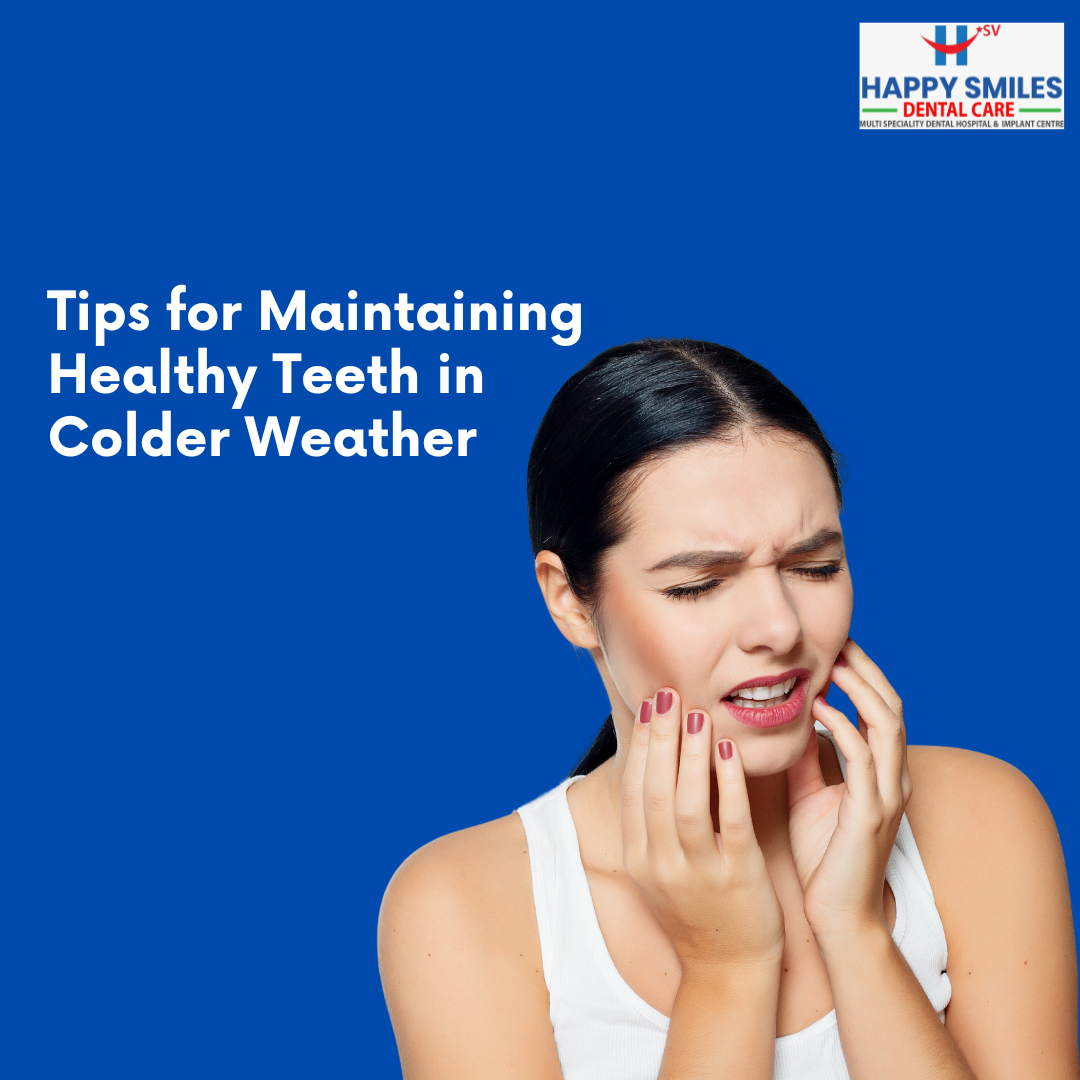Tips for Maintaining Healthy Teeth in Colder Weather
As the weather turns colder, many people notice changes in their oral health. Cold weather can affect your teeth and gums in various ways, making it important to adjust your dental care routine. Here are some essential tips to help maintain healthy teeth during the colder months:
1. Protect Your Teeth from Temperature Sensitivity
Cold air can cause tooth sensitivity, especially if you have weakened enamel or exposed nerves. When biting into cold foods or drinks, it can feel sharp and uncomfortable. To minimize sensitivity, consider using toothpaste formulated for sensitive teeth. These toothpastes contain ingredients that help block pain signals from the tooth’s nerve endings. If you experience frequent discomfort, it’s a good idea to consult your dentist to ensure there are no underlying issues like cavities or gum recession.
2. Stay Hydrated and Avoid Dry Mouth
Cold weather often leads to drier air, which can result in dry mouth. Saliva is essential for neutralizing acids in your mouth and washing away food particles. Without enough saliva, your risk for tooth decay and gum disease increases. To combat dry mouth, drink plenty of water throughout the day. You can also use a humidifier in your home to maintain moisture in the air, especially while you sleep. Chewing sugar-free gum can also help stimulate saliva production.
3. Protect Your Mouth When Playing Sports
Winter sports like skiing, snowboarding, and ice hockey are fun, but they also come with a risk of dental injuries. A blow to the mouth can result in chipped, broken, or even knocked-out teeth. To protect your teeth, always wear a mouthguard when engaging in contact sports or high-risk activities. Mouthguards cushion the impact and prevent injuries, ensuring that your teeth stay safe even in the most thrilling winter activities.
4. Be Cautious with Cold Foods and Beverages
Winter often brings an abundance of hot and cold foods, from warm soups to icy cold beverages. Constantly switching between extreme temperatures can put unnecessary stress on your teeth, leading to cracks or chips. Try to avoid eating or drinking very hot and cold items in quick succession. If you’re sensitive to cold, consider drinking room-temperature beverages and eating foods that are easy on your teeth. Avoid chewing ice, as it can damage your enamel and lead to cracks.
5. Maintain a Good Oral Hygiene Routine
During the colder months, it’s easy to become lax with daily routines, but it’s essential to maintain proper oral hygiene. Brush your teeth twice a day using fluoride toothpaste and floss daily to remove plaque buildup. Flossing is particularly important in colder weather, as sticky foods like dried fruits or candies are common during the holidays and can linger in your teeth, leading to decay if not removed. Don’t forget to visit your dentist for regular check-ups and cleanings to keep your teeth in top condition.
6. Watch Out for Holiday Sugars and Sweets
The holiday season often means an increase in sugary foods like candy, cookies, and sweet beverages. Sugar feeds harmful bacteria in the mouth, which can lead to cavities. While it’s tempting to indulge in seasonal treats, be mindful of your intake. After enjoying sweet foods, rinse your mouth with water or brush your teeth to remove sugar and prevent it from sitting on your teeth. Opt for healthier snacks, such as crunchy vegetables or nuts, which not only provide nutrients but also help clean your teeth as you eat.
7. Dress Warmly and Cover Your Mouth
Cold weather can cause tooth sensitivity and discomfort, particularly if you’re outside in chilly temperatures for long periods. If you’re planning to spend time outdoors, dress warmly and consider covering your mouth with a scarf or face mask to shield your teeth from the cold air. This can help reduce the impact of the cold on your teeth and gums.
8. Quit Smoking
Cold weather can exacerbate the harmful effects of smoking on your oral health. Smoking can cause gum disease, bad breath, tooth staining, and a higher risk of oral cancer. If you smoke, the winter months can be a good time to consider quitting, as it can significantly improve your oral health, immune system, and overall well-being.
Conclusion
Maintaining healthy teeth during colder weather requires extra attention to your oral health. By protecting your teeth from the cold, staying hydrated, and practicing good oral hygiene, you can avoid common winter-related dental issues. Remember to visit your dentist regularly and follow these tips to keep your teeth healthy and strong, no matter the season. Taking small steps now can lead to lasting dental health all year long.
Guide to Full mouth Dental Implants in Hyderabad
Understanding and Preventing Tooth Decay: Tips from Dentists




 Users Today : 0
Users Today : 0 Users This Year : 38
Users This Year : 38 Views This Year : 61
Views This Year : 61
